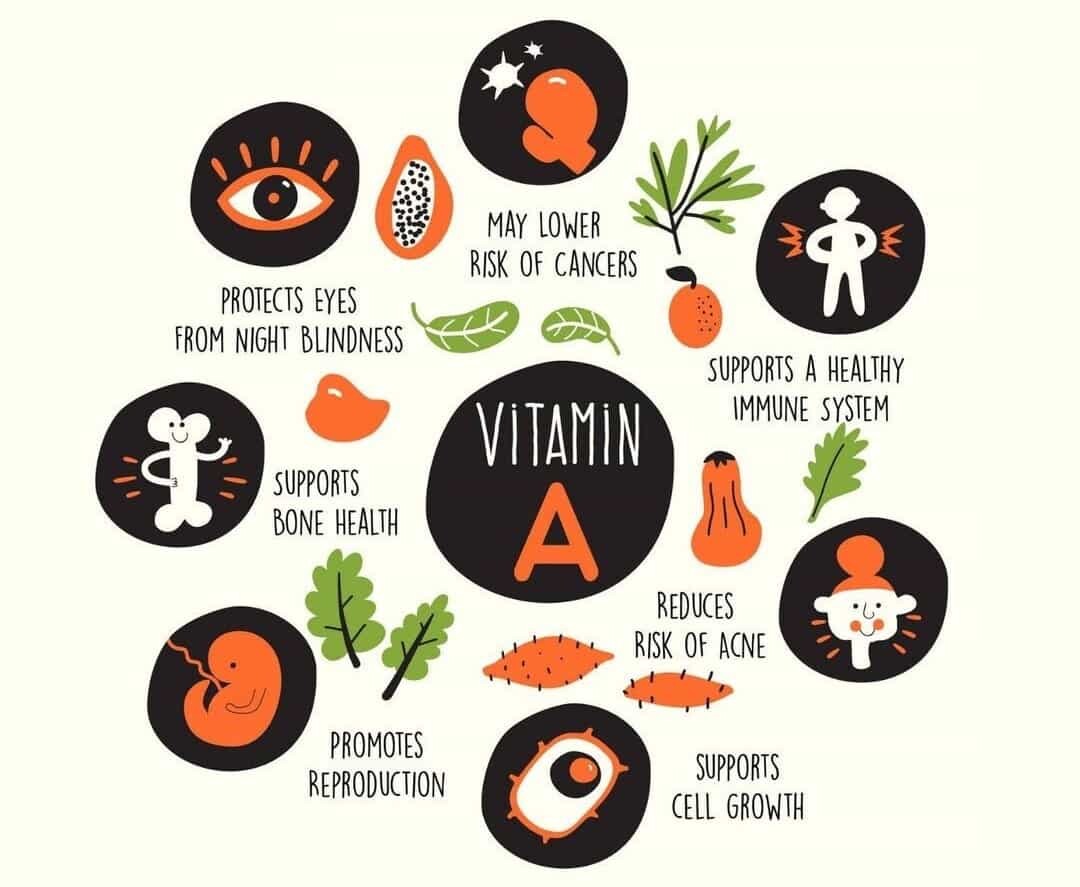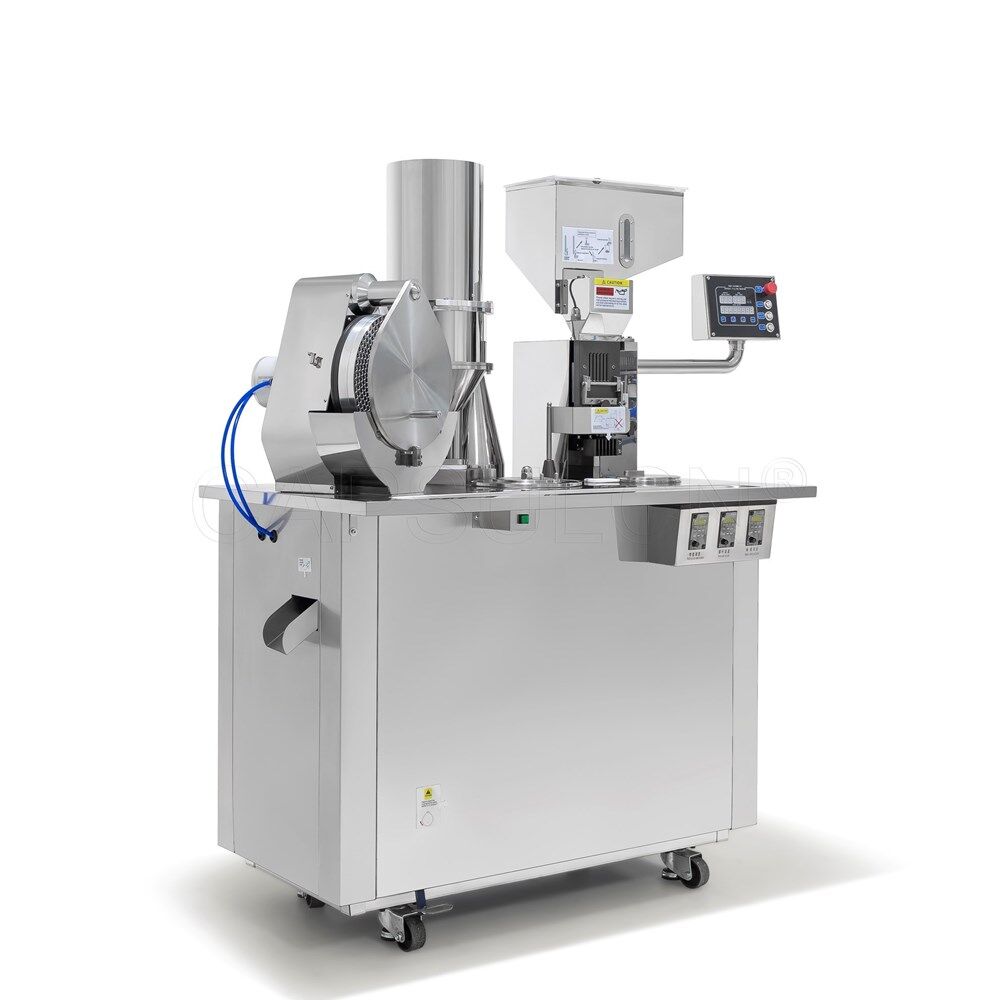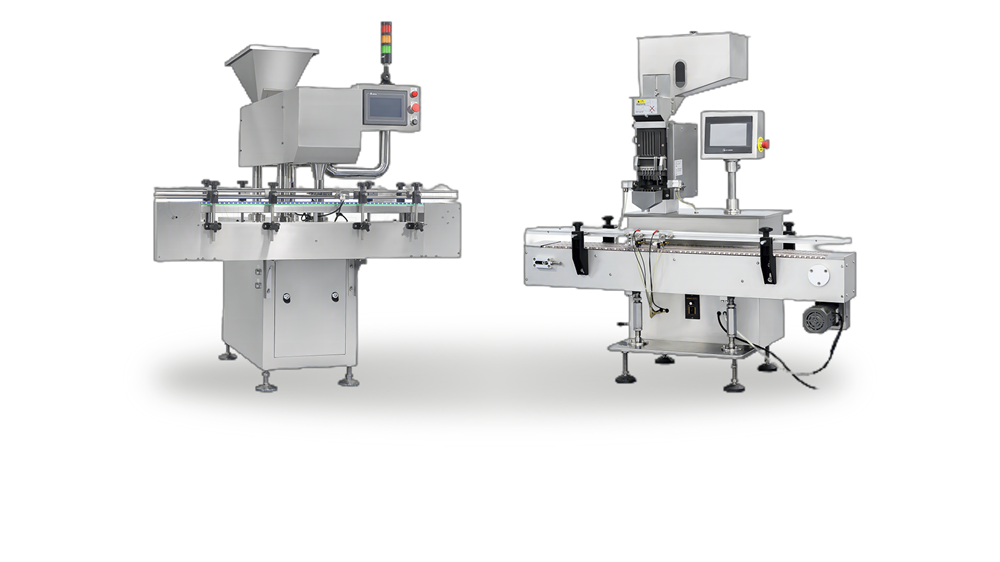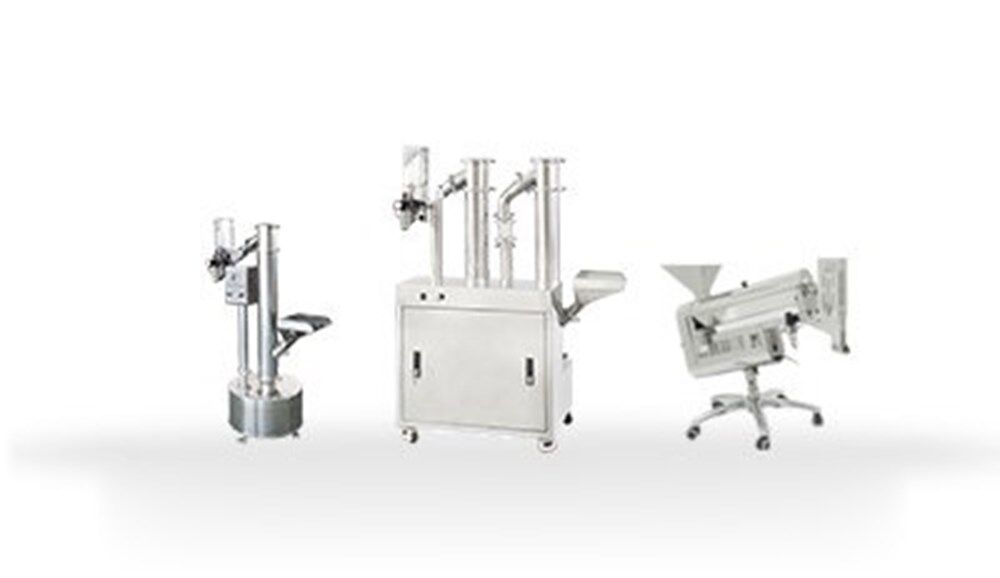Top Benefits of Vitamin A Capsules You Should Know About
Have you ever woken up in the middle of the night and wanted a glass of water but struggled to see clearly? This could suggest a potential problem with your eyesight. Want to keep your vision sharp? A simple supplement can work the magic for you—Vitamin A!
Many may think of eating carrots to get vitamin A. But what if you're not a fan of this vegetable? No worries! Today, there's an easier option: vitamin A capsules. These little pills are packed with this essential nutrient. Plus, they contain a precise dosage to ensure you get your daily intake.
But did you know that a single vitamin A capsule can do even more? In this post, let's explore the many health benefits of vitamin A capsules.
What Is Vitamin A?
The discovery of vitamin A dates back to the early 1900s. If you look it up, you'll find it's classified as a fat-soluble vitamin. This means that the nutrient dissolves in fats rather than water. This also means it can be stored in fatty tissues of the body. Whenever needed, your body can tap into those reserves.

Vitamin A comes in two primary forms:
1. Retinol: A preformed vitamin A. It is available in animal-derived foods like liver, fish, and dairy. It can be used readily and directly by your body.
2. Carotenoids: A provitamin A. Beta-carotene is the most prevalent form of provitamin A. It's found in plant-based foods such as carrots, sweet potatoes, and leafy greens. It's converted into retinol in your body.
Today, vitamin A is recognized for its essential roles in vision, skin health, bone development, cell growth, and supporting the immune system.
7 Incredible Health Benefits of Vitamin A Capsules
Vitamin A capsules are among the most common vitamin A supplement forms. Let's take a look at some of the top perks these little pills can offer:

1. Keep Your Eyes Healthy
Vitamin A produces a pigment called rhodopsin. This substance helps you see in dim lighting or at night. If you don't get enough vitamin A, you might find it harder to see clearly in the dark or have blurry vision.
If you worry about not getting sufficient vitamin A from food alone, a daily capsule can ensure your eyes stay sharp. Plus, vitamin A capsules can even reduce the risk of macular degeneration. This condition can cause vision loss as you age.
2. Strengthen Your Immune System
This is one of the biggest benefits of vitamin A capsules. It aids in making white blood cells, which fight off infections and protect you from illness. If you're constantly catching colds or feeling run down, it might be because you're not getting enough vitamin A.
By taking vitamin A capsules, you're giving your immune system a boost. Especially during cold and flu season, a regular dose of vitamin A can help keep your immune system strong and ready to defend you.
3. Promote Healthier Skin
Want glowing, healthy skin? Vitamin A can help with that, too. It encourages your skin to renew itself by shedding old, dead skin cells and making fresh, new ones. This process helps keep your skin smooth and youthful-looking.
But that's not all—Vitamin A can also treat acne. It controls oil production and keeps pores unclogged. Plus, it helps diminish fine lines and wrinkles by promoting collagen production. If you want to keep your skin looking great and feeling soft, go for vitamin A capsules!
4. Support Stronger Bones
Your bones need vitamin A, too. It helps your body make the proteins and cells that build strong bones. As you get older, bones can become weaker, but getting enough vitamin A can help slow this process.
In your body, there are cells responsible for building and breaking down bone tissue. Some studies show that vitamin A helps balance these cells. So, whether you're in your 20s or your 60s, vitamin A capsules are beneficial to your bones.
5. Support Reproductive Health
For women, vitamin A helps regulate egg production and plays a role in keeping everything balanced during pregnancy. In men, it's key for sperm health and overall reproductive function.
Studies have shown that low levels of vitamin A can make it harder to conceive. So, if you're trying for a baby, vitamin A capsules can help. They ensure that you're getting enough of this important nutrient to have a healthy reproductive system.
6. Help Protect Your Brain
This might be one of the unexpected benefits of vitamin A capsules. They can protect brain cells and support cognitive function. Vitamin A has even been shown to reduce oxidative stress, which can cause damage over time and contribute to diseases like Alzheimer's.
So, if you want to protect your brain and improve mental clarity, vitamin A capsules are a great addition to your daily routine.
7. Reduce the Risk of Chronic Diseases
Vitamin A is a powerful antioxidant. It helps shield your body from free radicals. These free radicals can cause long-term damage and contribute to the development of chronic diseases and even certain types of cancer.
Getting enough vitamin A can help reduce the risk of these diseases. For example, studies suggest that people who get enough vitamin A may have a lower risk of developing lung cancer. By taking vitamin A capsules, you're giving your body an extra layer of protection.
Comparing the Benefits of Vitamin A Capsules to Dietary Sources
Before vitamin A capsules, people got their vitamin A from various foods. So, what are the best dietary sources of vitamin A? Let's check them out!

Animal-Based Sources (Preformed Vitamin A)
These foods contain Retinol. It's the active form of vitamin A that your body can use directly.
1. Beef Liver
2. Cod Liver Oil
3. Dairy Products
4. Eggs
Plant-Based Sources (Provitamin A)
These foods are rich sources of Beta-Carotene. Your body converts it into vitamin A.
1. Carrots
2. Sweet Potatoes
3. Leafy Greens
4. Butternut Squash
5. Apricots
6. Bell Peppers
Fortified Foods
Some foods are fortified with vitamin A to help you reach your daily intake.
1. Cereals
2. Plant-Based Milk Alternatives
So, what's the difference between getting vitamin A from capsules and food?
|
Vitamin A Capsules |
Dietary Sources |
|
|
Capsules provide an exact dose of vitamin A, ensuring you get the right amount every time. |
Dosage Control |
It can be hard to measure exactly how much vitamin A you're getting from food. |
|
Just pop a capsule with water, no need to prepare or cook. |
Convenience |
You need to include specific foods in your meals regularly. |
|
Capsules ensure a steady intake, which is great for maintaining levels. |
Consistency |
Vitamin A intake can vary day-to-day based on your diet. |
|
Some capsules are oil-based, which helps your body absorb vitamin A better. |
Absorption |
Absorption can be affected by what else you eat with vitamin A-rich foods. |
|
Capsules often contain forms like Retinol that are easily used by the body. |
Bioavailability |
Provitamin A (like Beta-carotene) from plants needs to be converted by your body, which can vary in efficiency. |
|
Capsules can be taken regardless of dietary restrictions or preferences. |
Dietary Restrictions |
If you're vegetarian, vegan, or have allergies, finding suitable vitamin A-rich foods can be challenging. |
|
Capsules can quickly boost vitamin A levels if you're deficient. |
Supplementing Deficiencies |
It might take longer to correct a deficiency through diet alone. |
|
Capsules can be a cost-effective way to ensure adequate vitamin A intake. |
Cost-Effectiveness |
High-quality vitamin A-rich foods can be more expensive or less accessible. |
|
Capsules don't alter the taste of your meals. |
Taste and Preference |
Incorporating vitamin A-rich foods can change the flavor profile of your diet, which not everyone prefers. |
|
Easy to adjust your intake by taking more or fewer capsules as needed. |
Flexibility |
Adjusting vitamin A intake requires changing your food consumption, which can be less precise. |
Recommended Dosage of Vitamin A Capsules
How many vitamin A capsules should you take daily? It varies depending on a few factors. Considerations include:
— Age
— Gender
— Health condition
— Pregnancy or breastfeeding

Here's a list of the recommended daily intake of vitamin A for different individuals:
1. For Adults:
- Men (19 years and older): About 900 micrograms (mcg) per day.
- Women (19 years and older): About 700 micrograms (mcg) per day.
2. For Pregnant Women:
It's typically 770 mcg per day. However, pregnant women should be cautious about vitamin A intake, especially in the form of retinol. Too much can harm the baby.
3. For Breastfeeding Women:
They need about 1,300 mcg of vitamin A daily.
4. For Children:
- Children (1-3 years): 300 mcg
- Children (4-8 years): 400 mcg
- Children (9-13 years): 600 mcg
- Teens (14-18 years): 900 mcg for boys, 700 mcg for girls
5. For Special Conditions:
If you have certain health conditions (like malabsorption issues or liver disease or are on specific medications), you may need a different dosage. Always get advice from your healthcare provider before starting a supplement regimen.
Potential Side Effects of Vitamin A Capsules
Vitamin A capsules can be beneficial, but you should never overlook the potential side effects.
|
Side Effect |
Symptoms |
|
Vitamin A Toxicity |
Nausea, vomiting, dizziness, headaches, fatigue, loss of appetite, abdominal pain, joint and bone pain, hair loss, dry skin |
|
Birth Defects (Pregnancy) |
Developmental issues, birth defects (if taken in excess during pregnancy) |
|
Gastrointestinal Issues |
Nausea, diarrhea, constipation, upset stomach |
|
Skin Reactions |
Rashes, itching, swelling (especially on the face/throat) |
|
Bone Health Concerns |
Weakened bones, increased risk of fractures, bone pain |
|
Headaches & Vision Issues |
Blurry vision, increased pressure in the head, dizziness |
|
Allergic Reactions |
Swelling, difficulty breathing, rash, itching |
FAQs about Taking Vitamin A Capsules
1. Can I take vitamin A capsules every day?
Yes, taking vitamin A capsules daily is safe as long as you stick to the recommended dose. Do not exceed the upper limit (usually around 3,000 mcg for adults).
2. What is the best time to take vitamin A capsules?
Vitamin A is a fat-soluble vitamin. This means it's better absorbed with food that contains fat. It's a good idea to take them with a meal.
3. Can I get enough vitamin A from food alone?
Many foods are rich in vitamin A, but some people may not get enough from diet alone, especially those picky eaters. In such cases, vitamin A supplements may be helpful.
4. How do I know if I need vitamin A supplements?
If you're not getting enough vitamin A from your diet or if you have certain medical conditions, a vitamin A supplement might be recommended.
5. Are there any drug interactions with vitamin A capsules?
Yes, vitamin A capsules can interact with medications like Accutane, blood thinners, and cholestyramine. Always talk to your doctor if you're on other medications.
Leave your comment
Also Offers


Containment Automatic Capsule Filling Machine SFK-703

Fully Automatic Dosator Capsule Filling Machine CZ-40

Our Team
As an expert in the pharmaceutical and pharmaceutical packaging industry, iPharMachine has provided solutions for hundreds of pharmaceutical and health product manufacturers for 17 years. By visiting customers, we get good reviews from our customers.
- info@ipharmachine.com
- English Español Deutsche







